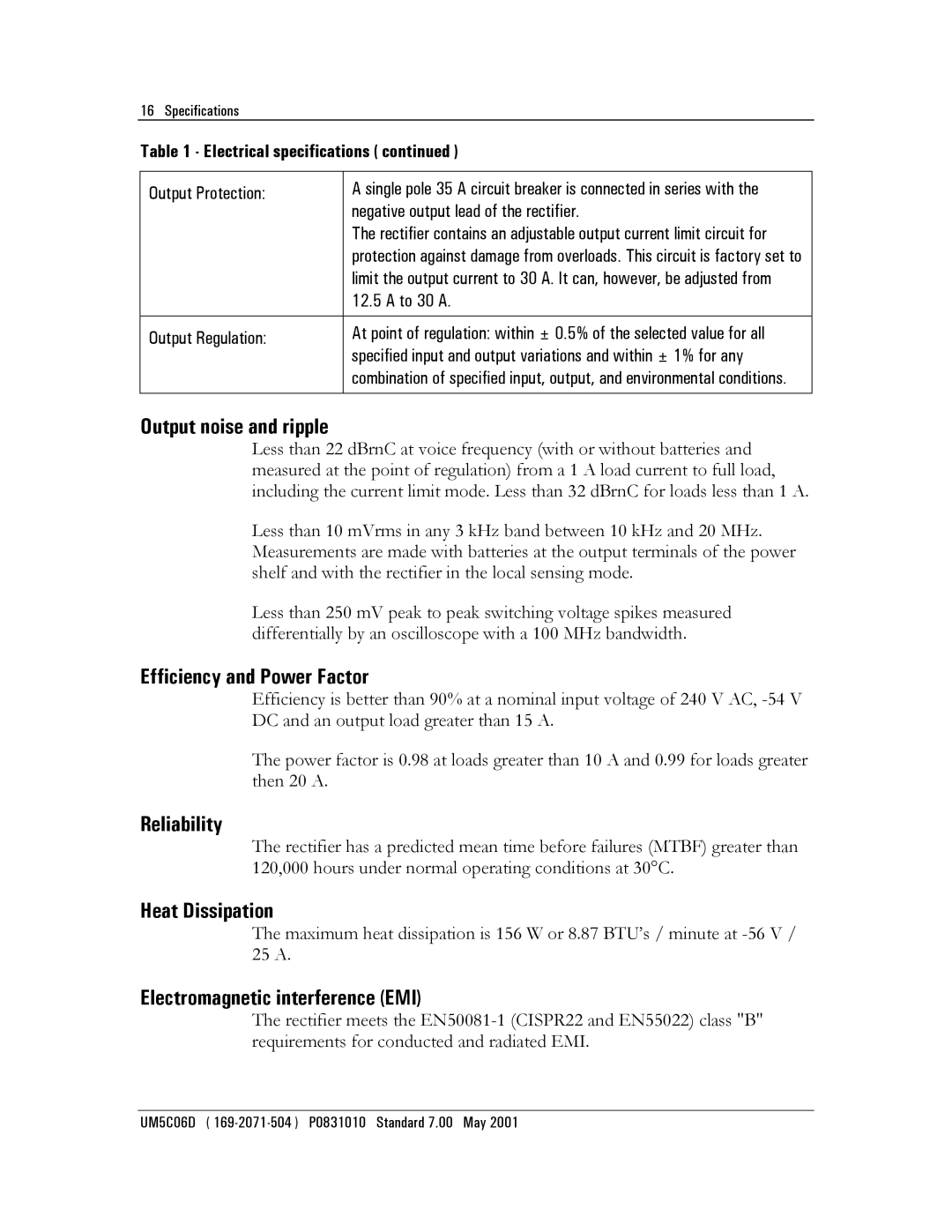
16 Specifications
Table 1 - Electrical specifications ( continued )
Output Protection: | A single pole 35 A circuit breaker is connected in series with the |
| negative output lead of the rectifier. |
| The rectifier contains an adjustable output current limit circuit for |
| protection against damage from overloads. This circuit is factory set to |
| limit the output current to 30 A. It can, however, be adjusted from |
| 12.5 A to 30 A. |
|
|
Output Regulation: | At point of regulation: within ± 0.5% of the selected value for all |
| specified input and output variations and within ± 1% for any |
| combination of specified input, output, and environmental conditions. |
|
|
Output noise and ripple
Less than 22 dBrnC at voice frequency (with or without batteries and measured at the point of regulation) from a 1 A load current to full load, including the current limit mode. Less than 32 dBrnC for loads less than 1 A.
Less than 10 mVrms in any 3 kHz band between 10 kHz and 20 MHz. Measurements are made with batteries at the output terminals of the power shelf and with the rectifier in the local sensing mode.
Less than 250 mV peak to peak switching voltage spikes measured differentially by an oscilloscope with a 100 MHz bandwidth.
Efficiency and Power Factor
Efficiency is better than 90% at a nominal input voltage of 240 V AC,
The power factor is 0.98 at loads greater than 10 A and 0.99 for loads greater then 20 A.
Reliability
The rectifier has a predicted mean time before failures (MTBF) greater than 120,000 hours under normal operating conditions at 30°C.
Heat Dissipation
The maximum heat dissipation is 156 W or 8.87 BTU’s / minute at
Electromagnetic interference (EMI)
The rectifier meets the
UM5C06D (
